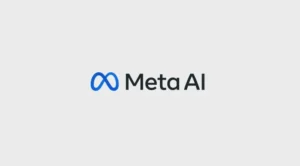Authors Protest in London Against Meta for Appropriating Their Work to Train AI

Authors Protest Against Meta’s AI Training Practices
Demonstration in London
On Thursday, approximately 100 authors gathered outside Meta’s headquarters in London to voice their concerns over the company’s alleged unauthorized use of their written works for training artificial intelligence models. The demonstration highlighted a growing tension between creators and technology companies in the evolving landscape of digital content.
Voices of Dissent
During the protest, writers expressed their frustrations through chants, calling out phrases like "Meta, Meta, book thieves." The atmosphere was charged as many carried signs conveying their displeasure. Messages like "I’d write a sign but you’d steal it" and "Get the Zuck off our books" were seen, referencing Meta’s CEO, Mark Zuckerberg. These slogans encapsulated the sentiments of many writers who feel that their intellectual property is not respected in the age of AI.
Background of the Allegations
The protest was fueled by a recent court filing in the United States. This filing revealed that Mark Zuckerberg allegedly sanctioned the practice of using the online library known as "LibGen." This platform provides access to more than 7.5 million books, many of which are copyrighted. Authors argue that utilizing such a resource without proper compensation or consent is tantamount to stealing their work.
Implications for Authors
The rise of AI has fundamentally changed how content is created and consumed. While some may argue that AI can enhance creativity by providing new tools for writers, others fear it undermines the very essence of authorship. The primary concerns raised by the authors during the protest include:
- Intellectual Property Theft: Many writers worry that their works are being exploited without their permission or any form of compensation.
- Fair Compensation: Authors are advocating for fair payment when their works are used to train AI models. They believe that creators should benefit from their intellectual contributions, especially when these contributions are utilized by large companies.
- Transparency and Consent: There is a strong call for clearer guidelines about how AI models are trained and what data is used. Writers want assurance that their work will not be included in these datasets without their knowledge.
The Response from Tech Giants
The conflict between authors and technology firms like Meta is part of a larger debate regarding ethics in AI development. Some tech companies have been accused of operating in a "wild west" environment, where the lack of regulation allows for practices that may infringe on creators’ rights. This has led to calls for increased legislation aimed at protecting the rights of creators amid rapid technological advancements.
Broader Context
The protest in London is not an isolated event. Similar movements have emerged globally, as authors and artists rally against perceived exploitation in various sectors. The rise of AI has prompted numerous discussions around the future of creative industries, with some advocating for stricter regulations on how AI models are trained and what constitutes fair use of content.
The Role of Libraries and Content Sharing Platforms
Platforms like LibGen spark further debate within the literary community. While they provide access to a wealth of information, critics argue that they undermine the livelihoods of authors. Many feel that such services should be scrutinized for their impact on copyright laws and the broader implications for creators’ earnings.
As the landscape of technology continues to evolve, the ongoing conversations surrounding authors’ rights and the ethical use of content will likely gain momentum. The recent protests reflect a crucial part of this dialogue, as creators seek to safeguard their work in an increasingly digital world.






